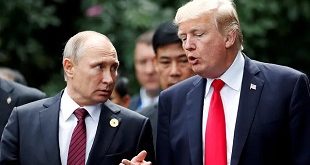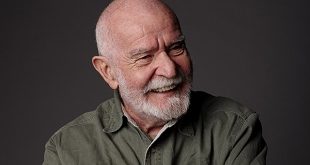
By Charles Onyango-Obbo
Recently I was visiting with Andrew Mwenda, the Strategy and Editorial Director of The Independent at his Butabika home when he squeezed me for a favour.
He asked that I write about what I thought President Yoweri Museveni was trying to achieve with his “reconciliatory” actions towards several likely and unlikely people over the last seven months; specifically his burying the hatchet with once-bossom-ally-briefly-turned-rival Rwanda President Paul Kagame (see “Burying the hatchet”, The Independent, July 14, 2012); his making up with Chris Rwakasisi, Obote II’s controversial minister whom the Museveni government jailed for over 20 years (see “How Museveni forgave archrival Rwakasiisi”, July 8, The Independent); and his surprise visit to Obote’s widow and former UPC leader and losing 2006 presidential candidate Mrs Miria Obote, (“Museveni’s visit to Miria Obote”, July 1, 2012, The Independent).
Among other people whom Museveni has visited and tried to make peace with, or probably actually made peace with, is Mzee Boniface Byanyima, the rigidly principled and stubborn elder of the Democratic Party, and father-in-law of the president’s bitterest rival, opposition FDC leader Dr Kizza Besigye.
Museveni’s relationship with the Byanyima family became truly the proverbial one of the ugliness of family fall-outs. Although he was raised in Byanyima’s household, the political recrimination that came to later mark relations between Museveni, Mzee Byanyima, his wife Gertrude, and their daughter Winnie was unnerving even by the worst comparisons of such feuds in history.

So what is my take on this Museveni? He is for sure going through something profound that is bringing out a side of him that we had rarely seen in public. For me, the most revealing signs of this came from a most unlikely source. In May I went to Mogadishu, the capital of war-torn Somalia. Upon return, I wrote an article about what I thought was the brilliant work being done by the UPDF contingent in the African Union peacekeeping force in Somalia, AMISOM.
Very many people were therefore surprised when President Yoweri Museveni wrote a 3,330 strongly-worded rebuttal published in both New Vision and Daily Monitor, in which he called me by name 33 times and denounced me in quite sharp language nearly 50 times.
It seemed like the heavens were going to come down on my head. However, as people were telling me that President Museveni was going to eat my liver for dinner the next time I set foot in Uganda (I have done so five times and I still have my liver), I was totally fascinated by his article for other reasons. (The unedited article can be found on my private blog NakedChiefs.com; “The Empire Strikes Back: President Museveni Fires Hot Shot At ‘NRM’ Enemy Over Somalia Report”, http://nakedchiefs.com/2012/05/09/the-empires-strikes-back-president-museveni-fires-back-at-nrm-enemy-over-somalia).
Few things Museveni has written lately have revealed so much. The only thing that I consider to have been strictly directed at me was actually quite conciliatory. For over 20 years, Museveni had referred to me as an “enemy of Uganda” (meaning he considered my writing treasonous, a serious crime indeed). Though many viewed his article as an angry attack on me, he actually downgraded my threat level, demoting me from an “enemy of Uganda” to an “enemy of the NRM”. With that I moved from a national threat, to being a minor irritant to his party.
Museveni is not a fool, so it pays to note his words when he sits down to write.
In that article, not only does he reveal many things, but he actually offers many big olive branches.
He acknowledged the support that Tanzania’s Mwalimu Nyerere, Mozambique’s Samora Machel and Libya’s Muammar Gaddafi gave to his (NRA/NRM) armed struggle. He also mentions, as far as I know for the first time, the help offered by Zambia’s Kenneth Kaunda – the only man on that list who is still alive. It is significant, of course, that when Milton Obote, Museveni’s arch-foe fled after the second coup against him in 1985, he was given exile in Zambia by Kaunda.
Obote died in October 2005 in Zambia, and his body was returned home where he got a state funeral of sorts. My sense is that before his recent visit to Kololo to see Miria Obote, Museveni had in that article sought to tell Kaunda, who hosted her husband, that all was forgiven.
This burying of the hatchet, as The Independent calls it, continued.
For the first time, Museveni acknowledges unequivocally that “(DR Congo, then Zaire dictator Sese Seko) Mobutu was defeated by the RPA (Rwanda Patriotic Army)”. This blew me away because, for several reasons, the Congo fall-out between Rwanda and Uganda that led to two wars between the two countries in eastern DRC around Kisangani, is partly traceable to a long interview that President Paul Kagame gave to The Washington Post in 1998, in which he said the unsayable – that it was Rwanda that kicked out Mobutu, and suggested all other countries were in DRC as escorts to Kigali.
Uganda felt irreparably belittled by a Rwanda that it still viewed then as a junior partner, a regime it helped install in power. It says something for Museveni to today accept Kagame’s view, a matter that has been in contest since 1998.
 The Independent Uganda: You get the Truth we Pay the Price
The Independent Uganda: You get the Truth we Pay the Price



